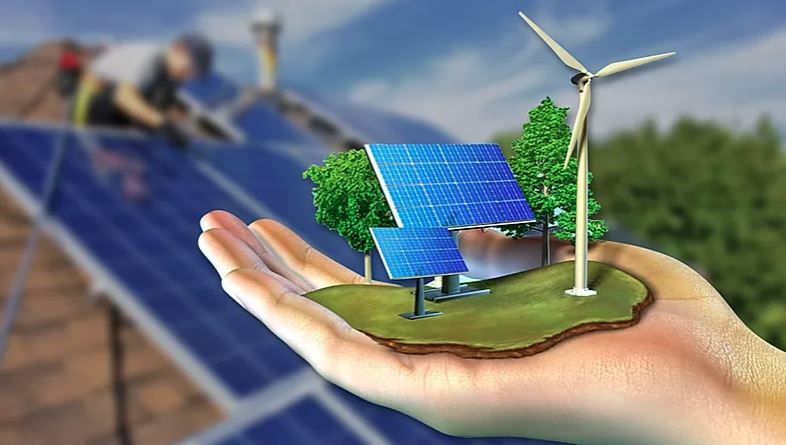[su_row][su_column size=”1/2″ center=”no” class=””]
All energy sources have some impact on our environment. Coal, oil, and natural gas are considered fossil fuels and do substantially more harm to the environment than renewable energy sources. Their environmental impacts include air and water pollution, damage to public health, wildlife and habitat loss, water use, land use, and global warming emissions.
Solar energy is a great source of renewable energy and provides substantial benefits to our climate and our health. With solar power, your home or business uses energy that is clean and has little to no impact on the environment. These significant environmental benefits are important to the planet and our well-being. If you are thinking about switching your home or business to solar take a few minutes to consider the following eco-friendly advantages of solar panel systems.
[/su_column]
[su_column size=”1/2″ center=”no” class=””]

[/su_column][/su_row]
- 1. Reduces the need for non-renewable resources.
- Solar energy is renewable. The sun is the world’s most abundant energy source. Although it seems as though we currently have more than enough fossil fuels, there will come a time when we will run out. By that time, it may be too late to depend on fossil fuels as a source of energy. Additionally, the expense of finding and extracting fossil fuels may become cost prohibitive. Switching to solar today is the best way to eliminate our dependence on fossil fuel.
- 2. Reduction in air pollution.
- Thirty-one percent of greenhouse gas emissions in the United States comes from electricity production. Greenhouse gases reduce air quality and increase weather extremes. Generating electricity with solar panels produces no greenhouse gasses whatsoever. The solar capacity currently installed across the United States is expected to offset as much as 16.8 million metric tons of carbon dioxide a year. Solar panel systems are an instant solution to reducing greenhouse gas emissions.
- 3. Reduction in water pollution.
- Solar photovoltaic cells do not need water to generate electricity. This is one of the biggest environmental benefits of solar energy. Power plants producing natural gas or coal-fired facilities require massive amounts of water to facilitate their cooling requirements. Solar energy operation does not require any water. This unique aspect of solar does not strain or pollute local water supplies needed for agriculture, drinking systems, or other vital water needs.
In conclusion there are two great aspects for commercial solar systems. Solar energy benefits the environment and helps you save money as well. Make the switch to solar and take advantage of its substantial financial benefits such as lower utility bills and increased property value. You will be doing yourself and the environment a favor.
If you are interested in finding out more about solar energy for your business, we invite you to contact us for a free custom solar quote from one of our experts.